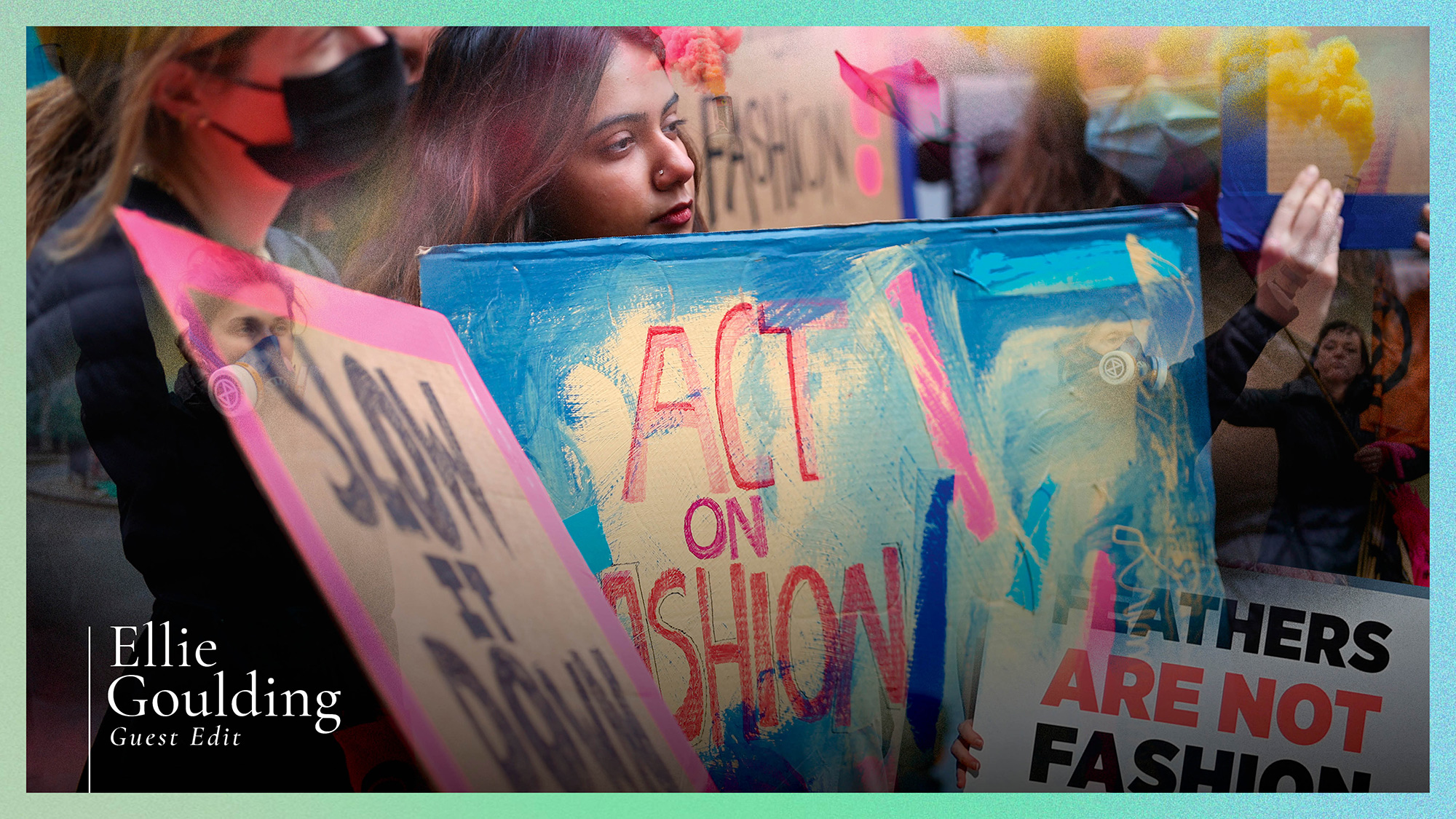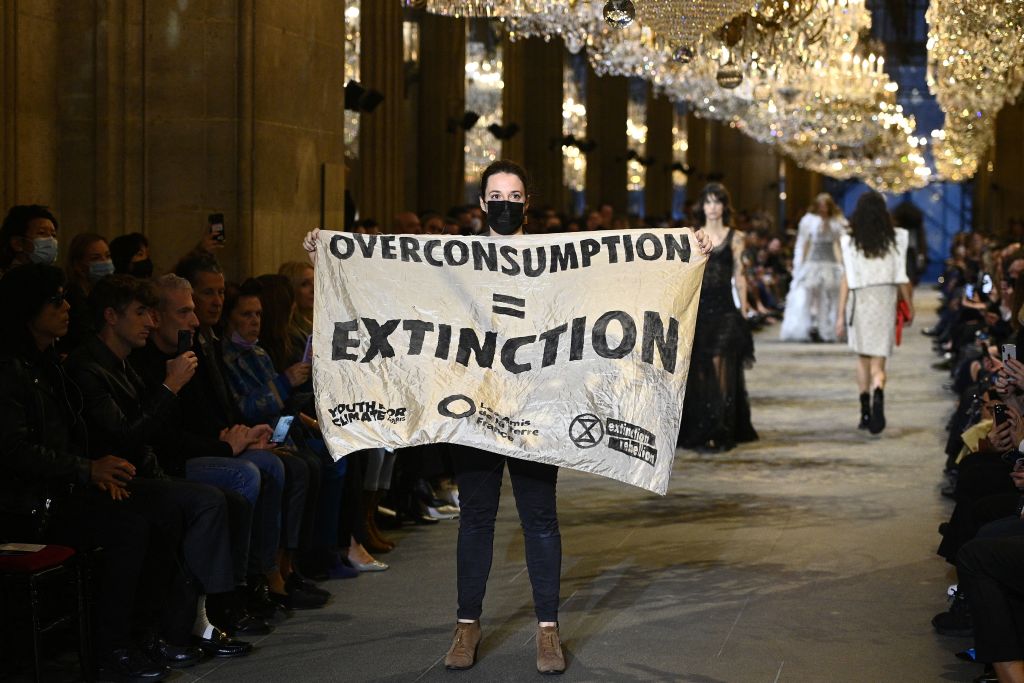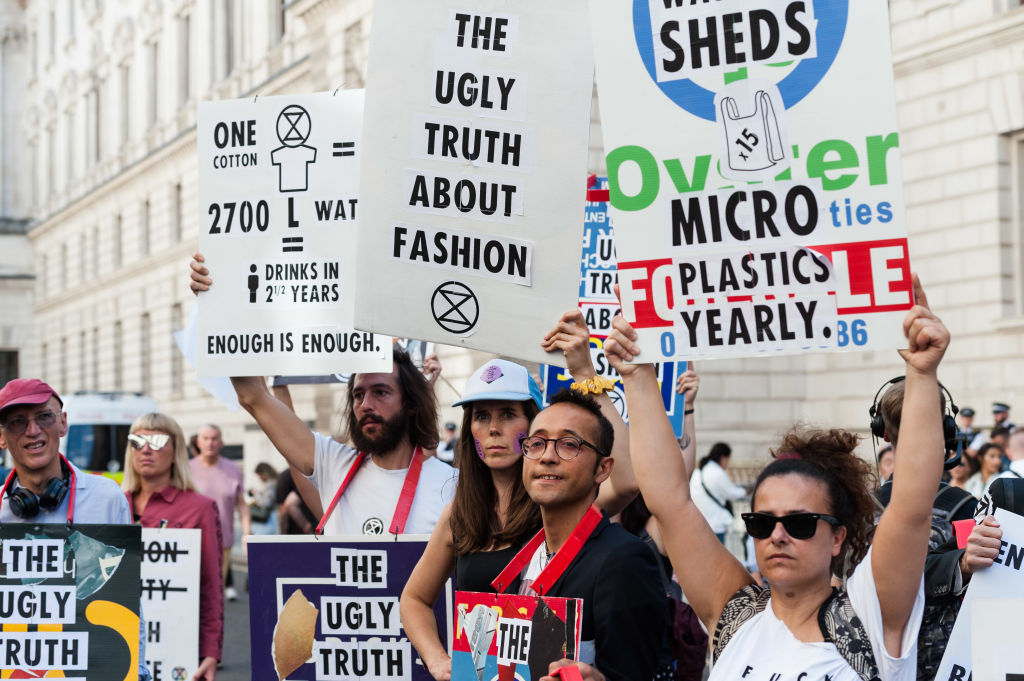
Here, the experts explain what the phrase "fast fashion" actually means, plus how to spot the brands genuinely doing their bit (vs those greenwashing).
Ever wondered, what is fast fashion? It's a question everyone seems to be asking this Earth Month.
Living sustainably has been on everyone's radar since the UN's "Code Red" IPCC report, but it's often very difficult to cut through the greenwashing to identify the brands genuinely doing their bit to build a better tomorrow.
More of us are becoming aware of the issues and environmental impacts of fast fashion, and more of us are trying to be more mindful about our spending decisions. But it's hard when even the fast fashion brands get good at disguising themselves as eco-warriors, right?
As sustainable fashion stylist Rebecca Davies points out, "Sustainability is a buzzword at the moment, with all of the major brands wanting to jump on the trend - but when you boil it down, the act of mass-producing a product is not sustainable."
Keep reading for an expert breakdown of the definition of fast fashion, plus the easy ways to avoid it in your day-to-day - and don't miss our guides to calculating your carbon footprint and the benefits of eating organic food, while you're here.
What is fast fashion?
In short, the term "fast fashion" largely describes brands that get products to the store as quickly as possible, cutting corners (and workers' paychecks) in the process to churn out more and more high street items.
The Oxford English Dictionary defines fast fashion as "inexpensive clothing produced rapidly by mass-market retailers in response to the latest trends."
Celebrity news, beauty, fashion advice, and fascinating features, delivered straight to your inbox!
As one 2018 study published in Environ Health said, the widely available nature of fast fashion has categorically changed the way consumers both shop and further dispose of clothes.

"By selling large quantities of clothing at cheap prices, fast fashion has emerged as a dominant business model, causing garment consumption to skyrocket. The human and environmental health risks associated with inexpensive clothing are hidden throughout the lifecycle of each garment. From the growth of water-intensive cotton to the release of untreated dyes into local water sources to workers’ low wages and poor working conditions; the environmental and social costs involved in textile manufacturing are widespread," the abstract reads.
That's where more ec0-friendly shopping comes in. Sustainable fashion focuses on producing garments and accessories in a way that doesn't harm the planet - or people - in the process.
How do I identify brands that are producing fast fashion?
It can be difficult, that's for sure. One thing to look out for is greenwashing - a term used to describe misleading marketing practices, often through campaigns, that give the impression that a brand or product is more ethical than it actually is.
It is a technique often used by large, fast-fashion retailers in an attempt to appeal to – and exploit – environmentally conscious consumers.
As Davies explains, "It is always worth looking past the beautiful, earthy marketing and double-checking a company’s facts before making a purchase."
1. Utilise online tools
Did you know? There are a number of online tools to help you to identify the ethical ratings of brands and products. Ethicalconsumer.org has developed a research tool with data from over 40,000 companies, brands, and products. They also have a wide selection of company profiles and shopping guides, to help you make informed decisions at the checkout.
"Good on You is also a really good tool. But don't use a brand’s company page as gospel as to whether they're eco-friendly or not," says Davies.
Marie Claire UK Health and Sustainability Editor Ally Head loves and trusts B Corp certified brands. Don't miss our guide to our go-to B Corp brands, while you're here.
2. Look at how many products the brand sells
Sustainable lifestyle blogger, Freya Wood, adds that the first thing she will look at to detect how ethical a brand is to look at the number of products they sell. "Releasing hundreds of new styles a week is completely incompatible with sustainability," she says.
3. Check out the brand's supply chain
She also recommends checking out Fashion Revolution to see a brand’s commitment to sustainability and supply chain, too.
According to Wood, "Only when a brand can track their supply chain can they actually take control of sustainability production."

Can fast fashion ever be sustainable?
Short answer? No. A number of high street fast fashion retailers have released their own "sustainable" clothing ranges in the past few years - but that goes against their very business model.
There's been lots of debate as to whether these brands, which are notorious for producing huge amounts of fast fashion, can claim to be environmentally friendly with these reimagined branding initiatives.
Davies reckons that it's simple enough to figure out for yourself. "To me, the clue is in the name. Fast fashion is about churning out product after product. A company would have to re-brand as a slow-fashion company and create one or two collections a year and limited pieces to be classed as truly sustainable."
Wood agrees, adding: "As long as brands continue to produce and sell clothing at the excessive rate we see now, they can’t be sustainable. Whether the clothes are produced in sustainable ways or not, a brand can't be sustainable if they are dedicated to profiting from excessive buying of low-quality fashion items."
Additional words by Phoebe Walker.

Ally is Marie Claire UK's Senior Health and Sustainability Editor, a well-regarded wellness expert, ten-time marathoner, and Boston Qualifying runner.
Utilising her impressive skillset and exceptional quality of writing, she pens investigative, review and first-person pieces that consistently demonstrate flair and originality.
As well as writing, Ally manages a team of freelancers, oversees all commissioning and strategy for her pillars, and spearheads the brand's annual Women in Sport covers, interviewing and shooting the likes of Mary Earps, Millie Bright, and Ilona Maher. Shortlisted for three BSMEs and winning one in 2022, Ally lives and breathes her verticals: her eye for a story and connections within the wellness sphere are unrivalled. Follow Ally on Instagram for more.
